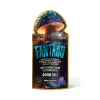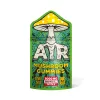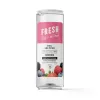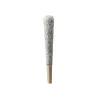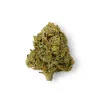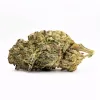Delta 8 is the most exciting cannabinoid to hit the legal market in decades. Activists and entrepreneurs have transformed an underground product into a popular consumer item nearly everyone enjoys. With Delta 8, the industry has gone further than ever before to bring consumers an exciting product that breaks new boundaries. Users get a mild but enjoyable psychotropic high from this hemp-derived cannabis derivative.
It's legal, too.
As a result of continuous research and innovation in the cannabinoid space, Delta 8 products have risen to prominence, offering cannabis enthusiasts a new way to enjoy an old friend. This new cannabinoid is a revelation in plant-based consumables. Users can experience a buzzy but safe high in the comfort of their homes, and they do so legally without worrying about any consequences.
Why is Delta 8 THC so popular, and why does the cannabis community hold it in such high regard? And how is Delta 8, which causes a psychotropic high, legal?
How is it all possible?
What Is Delta 8?
What is Delta 8, and why is it taking the cannabis market by storm? How popular? Over the past few years, Delta 8 THC has become a prevalent cannabinoid. CBD oil companies like Diamond CBD are now combining Delta 8 with CBD to create new products such as Delta 8 Gummies, Delta 8 Vapes, Delta 8 Oils, and more, all balanced out with CBD.
But what is Delta 8?
According to several studies, researchers note that Delta 8 THC is a degraded form of THC. But what does that mean? Delta 8 is a minor cannabinoid. Cannabinoid-synthesizing enzymes do not produce it. Instead, Delta 8 is made when THC, which is stored in cannabis plants, degrades over time. Delta 8 is then formed after some time.
As Delta 8 is found in such low quantities, cultivating and extracting the compound for mass consumption requires tremendous skill.
Delta 8 is not well known to researchers...yet. We know Delta 8 is safe, but we do not have as much information on it as we do Delta 9 products and CBD. However, the information we do have is quite impressive and unique. Delta 8 THC is closely related to its cousin cannabinoid, Delta 9 THC, which is probably why it is so popular these days. The two compounds differ in only a few atomic bonds, which accounts for their similar psychotropic effects. However, Delta 8's high is more subtle and smooth.
While Delta 8 is a legal high, the drug has several exceptional properties that make it popular with users. Although Delta 8 is very similar to Delta 9, the mechanisms behind its operation are different. Delta 8 has a much more subtle and smooth feeling than Delta 9. Delta 8 binds to CB1 receptors differently than Delta 9 THC so that users can experience various benefits, many of which we're still learning about.
Because of these different binding affinities, Delta 8 provides one of the cleanest experiences of any cannabinoid on the market today.
As Delta 8 is similar to Delta 9, some researchers have hypothesized that it works better in conjunction with CBD than on its own. It is possible that Delta 8 THC can enhance entourage effects. Adding Delta 8 to the entourage effect, the body feeling you get when you combine cannabinoids, terpenes, and flavonoids might increase it even more.
Does Delta 8 Get You High?
Delta 8 THC gives users the benefits of cannabis and hemp in a novel, new cannabinoid that makes them feel like they're floating in the clouds. Users can experience a mind-blowing buzz while keeping a clear head and staying on task to meet whatever the day brings. What most users want to know is if Delta 8 gets them high.
In anecdotal reports, Delta 8 users say they have less anxiety and have an easier time handling daily activities because it binds to CB1 receptors differently from its cousin, THC.
Before we discuss the benefits of Delta 8 THC and what it does for your body, let’s talk just a bit about its buzz. The buzz gets you in the door, but the benefits keep you returning for more. Still, what makes Delta 8 THC so exciting is its psychotropic properties. After all, so many people discovered Delta 8 because of its psychotropic high.
The buzz or psychotropic high you might get from Delta 8 is a bit milder than what you might get from Delta 9 THC. Chemically, the two are very different, at least by a few atomic bonds.
Delta 8 and Delta 9 differ because Delta 8 THC has a smoother and subtle buzz. It has less anxiety and paranoia. It leaves you with a much clear head.
Delta 8 THC highs are generally described as milder or 'lighter' than Delta 9 THC highs. The high has also been described as similar to D9 THC but without the paranoia or anxiety experienced by many users.
In addition to the buzz, Delta 8 has many other benefits.
Can Delta 8 THC increase the entourage effect? We don't know if it works with terpenes, flavonoids, or other cannabinoids, but some users swear it does. It may be up to the individual experience, although more research and time will ultimately tell.
Delta 8 High vs. THC High
What is delta 8? Delta 8 is a derivative of THC, which is why both cannabinoids are so similar. It occurs when THC degrades in the hemp plant over time. Both compounds are similar (although Delta 8 is legal). However, they do have differing effects. Delta 8’s high is much more subtle, allowing you to stay alert and aware during the day.
More than just a high, Delta 8 has several benefits for users. Even though Delta 8 is very similar to Delta 9, they work differently behind the scenes. Delta 8 binds to CB1 receptors in a much different way than THC, giving the former a smoother, more subtle feeling. Right now, researchers are conducting studies and still learning all they can about Delta 8.
So how do the two compare? Let’s take a look:
Delta 8
|
Delta 8 Benefits |
Delta 8 Risks |
|---|---|
|
Relief from pain |
Fatigue |
|
A better night's sleep |
Feeling disoriented |
|
Increased appetite |
Eyes and mouth are dry |
|
Inflammation is reduced |
A rapid heartbeat |
|
Mild Psychotropic High |
Coordination problems |
Delta 9
|
Delta 9 Benefits |
Delta 9 Risks |
|---|---|
|
Feeling relaxed |
Anxiety |
|
Reduced anxiety |
Paranoia |
|
An increase in appetite |
Sleepiness |
|
Exhilaration or happiness |
Sense of confusion |
|
Strong psychotropic high |
Mouth feeling dry |
Does Delta 8 Show Up On a Drug Test?
We all want to know if Delta 8 THC will appear on a drug test. Maybe you need to pass a drug test for work, school, or for some reason.
The news isn't all good, though.
On the positive side, many more businesses refuse to allow hemp and cannabis use to interfere with their hiring practices. It is now clear to forward-thinking CEOs and business owners that cannabinoids are safe and do not interfere with our everyday lives. Of course, we still have a lot of ways to go (and we do mean miles).
It turns out that Delta 8 THC can show up positive on a drug test. In reality, it's not always accurate, and false positives are common. Drug tests don't detect THC in your body. Instead, they see byproducts that suggest that you've used. Since Delta 8 and Delta 9 contain similar compounds, traces of Delta 9 may be detected when using Delta 8.
We know that mandatory drug testing usually subscribes to SAMHSA guidelines. They’re named after the federal organization known as the Substance Abuse and Mental Health Services Administration. What they’re searching for is byproducts of THC. Lab technicians run an immunoassay with antibodies to detect THC’s primary metabolite, known in the scientific world as 11-Nor-delta9-carboxy-THC (THC-COOH). What that means for you is that Delta 8 is detectable by a standard drug test.
Delta 8 and Delta 9 are so similar that these tests can’t tell the difference. So, there is a better than zero chance that you will pop positive. We know it’s not what you wanted to hear.
How Long Does Delta 8 Stay in Your System?
Delta 8 THC, a compound found in marijuana (or hemp), binds to neurochemicals known as dopamine at specific brain receptors, making it one of the most abundant psychoactive cannabinoids on the planet. When Delta 9 THC binds to these receptors, you experience the high associated with marijuana use. However, how long does delta 8 stay in the body?
As soon as Delta 8 THC enters the body, it breaks down into 1-hydroxy-Delta 8 THC, which is non-psychoactive. The body converts Delta 9 THC into Delta 8 THC through metabolic processes, including those induced by heating marijuana.
In general, delta 8 THC exhibits a half-life of 40 minutes to 7 hours, and it is detectable in the body for one to three days after consumption, although this can vary depending on your size, weight, and other factors.
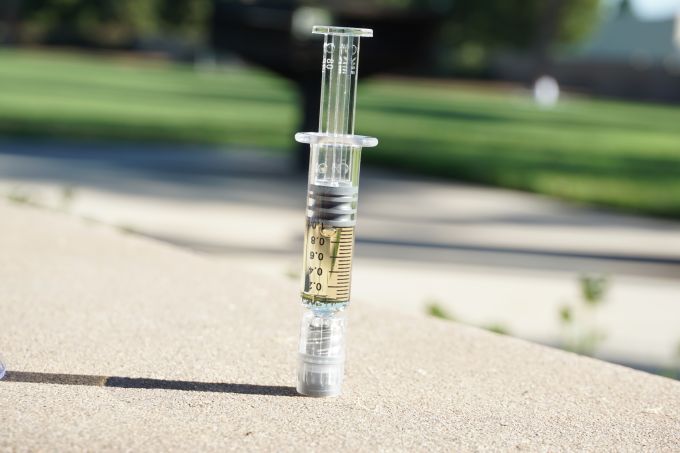
Can You Build Up a Tolerance To Delta 8?
Can you develop a tolerance for delta 8? It's a great question. The last thing anyone wants to do is to purchase some Delta 8 and then need more of it every time to feel the buzz. This would not only become overwhelming after a while, but it would also become costly.
THC tolerance is thought to result from cannabinoid receptors in the brain that bind THC (and we can translate this to delta 8 THC). A measurable reduction in CB1 receptors has been found in research on lab animals when THC is regularly used. A group of researchers reached the same conclusions in 2012. They also found a 4-week break from THC use increased CB1 receptor expression, suggesting that taking a break from THC might be sufficient to reverse a tolerance buildup, indicating that it is possible.
Researchers also reported that the brain developed tolerance to THC in different ways. Moreover, although the pain-relieving effects diminished over time, other products, such as reduced anxiety levels, did not, indicating that not all THC results are subject to tolerance buildup.
There is no set threshold for delta 8 tolerance. Most people only use it occasionally. However, some people use it more frequently. Frequent use can lead to overdoing it, which can lead to tolerance. It's always important to use moderation, but it can be easy to forget how much you've taken and keep puffing.
Will you build up a tolerance if you continue to puff or pop gummies?
In studies, Delta 8 THC doesn't show tolerance, but some user reports say it's pretty much like Delta 9 THC. The product can build tolerance if it's overused. To keep tolerance in check, we recommend using it moderately. Take a short or small break from it to keep your tolerance in check.
If Delta 8 is used excessively, you will experience tolerance issues. Be cautious, use it moderately, and take breaks from tolerance.
Delta 8 Manufacturing Process
You’ve heard the rumors and read the article. There is a growing belief that Delta 8 THC is a synthetic cannabinoid created by a lab to evade the law so people could enjoy getting high. It contains dangerous chemicals that can harm you if you use it. Don't buy Delta 8 before you end up dead in a ditch.
There is nothing more false than that.
A cannabinoid derived from hemp, Delta 8 THC is all-natural. In the hemp plant, Delta 8 THC is found in tiny amounts. To make enough for mass consumption, a process occurs in the lab to convert CBD into Delta 8, but it is still an all-natural, hemp-extracted product.
How does this process work?
As soon as the CBD isolate is ready, it needs to be transformed into Delta 8-THC by isomerization.
The CBD must be dissolved in an acid, usually glacial acetic acid. This chemical process first converts some of the CBD into Delta 9-THC, but after 72 hours, over half of it is Delta 8-THC.
To create the wide variety of Delta 8 products you can find on the market today, the material is carefully refined once again to remove unwanted materials, like acids.
So why all the crazy rumors? Market competition is at fault. Delta 8 THC is sweeping the nation. People love it and the fact that it's legal and readily available. Who doesn't love it? Companies that sell cannabinoids that aren't legal. Instead of working together, they're trying to squash the competition.
The truth is Delta 8 THC is entirely safe and all-natural.
Is Delta 8 Safe?
Everyone wants to know if Delta 8 is safe. There has been very little research done on Delta 8 THC, at least compared to CBD, at the moment, as it is relatively new on the consumer market. As of this writing, Delta 8 THC is still being researched, and we learn new things daily.
It is well known that Delta 8 THC activates the CB2 receptors in the body, which is why it has several health benefits in addition to the legal buzz. And, of course, it touches your CB1 receptors too, which is why there is a psychotropic effect. Despite the smooth and subtle buzz, you can keep your head clear and your wits about you. It’s great for going through a long workday and hitting the pillow at night.
The way Delta 8 Gummies don't cause anxiety or paranoia is different from how Delta 9 THC does. As both compounds cause a high, Delta 8 and 9 THC are often compared naturally. Despite the research, Delta 8 might be safer than its more famous cousin.
It was not as well researched as some other cannabinoids in the past. However, recent studies have tried to shed some light on this valuable cannabinoid. They continued by noting that in recent studies, “scientists have discovered that Delta 8 THC has a less harmful psychoactive effect than Delta 9 THC.”
So, as you can see, new research is emerging showing that Delta 8 gummies are safe, especially when compared to Delta 9.
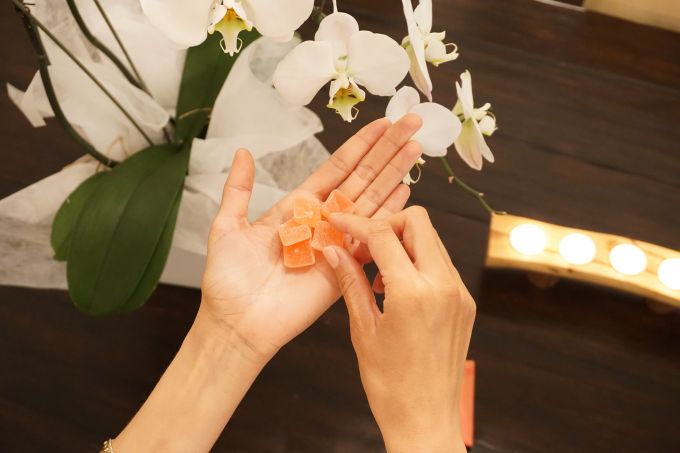
Is Delta 8 Legal?
We’ve answered the question “what is delta 8,” but we have to ask if delta 8 is legal. Almost nobody can believe Delta 8 THC is legal, but it is. We’re used to everything fun being illegal, but thanks to the Farm Bill of 2018, we can now all feel the buzz. The DEA, however, does not like the current state of affairs. Last year, they issued a final interim rule to bring the farm bill into compliance with the Controlled Substances Act so they could ban cannabinoids such as Delta 8.
This final rule stated that all synthetically derived tetrahydrocannabinol remains a schedule I controlled substance. Why is this significant, and how does Delta 8 relate to it? Companies must perform a structural isomerization process under laboratory conditions to produce enough Delta 8 THC in their products.
It is created by modifying the molecular structure of CBD and converting it into Delta 8. Since Delta 8 is produced by chemical or biochemical synthesis, it is considered a synthetic substance by the DEA.
As it turns out, Delta 8 THC isn't synthetic at all. It's made from CBD, which is an all-natural, hemp-derived cannabinoid. Thus, it remains a legal gray area, which means the DEA will continue to pursue making Delta 8 illegal.
There have been many recent concerns about Delta 8 THC, including news headlines about its safety and efficacy, but these are mostly fearmongering. Delta 8 THC is completely and utterly safe to use. But states continue to restrict its use or even ban it altogether.
To date, several states have banned or restricted delta 8, including:
- Alaska
- California
- Colorado
- Connecticut
- Delaware
- Idaho
- Iowa
- Louisiana
- Maryland
- Michigan
- Minnesota
- Montana
- New York
- Nevada
- North Dakota
- Oregon
- Rhode Island
- South Dakota
- South Carolina
- Utah
- Vermont
Are you looking to change things in your state? Write your lawmakers today!
Can You Travel With Delta 8?
Do you remember the early days of CBD when it hit it big in 2015 or around then? We used to worry about it when CBD hit the big time. We all wondered if hemp-derived cannabinoids were legal and if the TSA would send us to Guantanamo to bring them on the plane to Disneyworld. CBD is now perfectly legal, so you won't have to worry about riding the It's a Small World ride.
Traveling with CBD products is the same as any other over-the-counter supplement. According to TSA guidelines as of January 2020, any person can bring CBD products on board as long as they contain no more than 0.3 percent THC on a dry weight basis or are FDA-approved.
But what about delta 8?
Whether your next trip is to Idaho, Disneyland, or the Grand Canyon, you can legally take Delta 8 THC on the plane. The short answer is yes, and you can take it on the plane.
What makes this possible?
The presence of Delta 8 THC does not make it a controlled substance on the federal level. It is the same as carrying vitamins, aspirin, or carrots.
We can also examine the Farm Bill to determine if hemp CBD-derived Delta 8 THC meets the definition of hemp derivatives. As far as the bill is concerned, the term ‘hemp’ includes both the plant and its cannabinoids, based on the bill's wording. The bill doesn't distinguish between hemp and its parts. According to the bill, hemp makes CBD, so CBD is also hemp. Therefore, hemp is not a controlled substance.
Delta 8 THC is prohibited in several states, and international flights can be tricky. So be sure to pay attention to where you are going. However, as long as you know your destination, you know what you can take (hint: Delta 8 THC).

Delta 8 vs. Other Cannabinoids
So you've finally decided to try Delta 8 THC after hearing all the wonderful things about it. It has a euphoric, psychotropic buzz that takes you to another world. It has many more benefits than just the buzz — it's an all-natural hemp-derived cannabinoid, legal (at least at the federal level).
I'm sure you're wondering how Delta 8 THC compares to other cannabinoids like HHC and others.
Delta 8 vs. Delta 10
Regarding hemp-derived cannabinoids, Delta 8 and Delta 10 are probably the yin and yang of what's available today. Both cannabinoids are natural and derived from hemp, but that's about the extent of their similarities.
Most people use Delta 10 THC for specific reasons — energy, focus, and creativity. To feel energized, creative, or focused, most people like this cannabinoid. When Delta 8 brings you down, Delta 10 brings you up. A great evening with Delta 8 THC will find you relaxing on the couch, chilling out with friends, and enjoying some good conversation. You can also spend your day cleaning the house, completing a project, and developing new ideas with Delta 10.
In the same way, CBD balances cannabis consumption, Delta 8 THC balances out Delta 10.
Delta 8 vs. HHC
So, how is Delta 8 THC different from HHC, hexahydrocannabinol, a hemp-derived cannabinoid? Users should note that Delta 8 THC is in the middleweight division while HHC is in the heavyweight division. However, that’s not a comment on whether either cannabinoid is beneficial or not. We all know some great middleweights that none of us would mess with.
For those seeking a cannabinoid that has a string buzz, HHC is an excellent choice. It has more potency than Delta 8 THC, so it is a good choice. While Delta 8 THC can make you feel a mild buzz, HHC lets you experience something much more potent. Although HHC has similar effects to THC, it is less powerful than Delta 9 THC. According to many, HHC is half as potent as Delta 9 THC.
Delta 8 vs. CBD
That’s how Delta 8 THC levels up against some of the biggest, most popular hemp-derived cannabinoids on the market today, but don’t forget there are a few others out there as well. Regarding CBD, including CBD Isolate, Broad Spectrum CBD, and Full Spectrum CBD, Delta 8 THC is another stratosphere. That’s because D8 is a euphoric cannabinoid that offers users a psychotropic high, whereas CBD… doesn’t. So when choosing between the two, you need to ask yourself what you want from hemp.
How Much Delta 8 Is Right For Me?
So if you want to try delta 8, you will want to dose it properly. Before diving in, take a look at our dosing chart below:
|
Person Size |
Low Dosage |
Mild Dosage |
High Dosage |
|---|---|---|---|
|
20-25lbs |
4.5mg |
6mg |
9mg |
|
26-45lbs |
6mg |
9mg |
12mg |
|
46-85lbs |
9mg |
12mg |
15mg |
|
86-150lbs |
12mg |
15mg |
18mg |
|
151-240lbs |
18mg |
22mg |
27mg |
|
240+ lbs |
22.5mg |
30mg |
45mg |
Delta 8 is available in various forms, including oils, edibles, vape products, and distillates. Each one will affect you differently, and you should know how they will work ahead of time. The following example will help you determine which type of Delta 8 product is best for you:
- Vape (Inhale) - Vaping or inhaling Delta 8 will have the quickest onset time and last the least amount of time.
- Sublingual (via Oil) - Anyone can use Delta 8 oil in a few different ways. You can mix it with a food or drink or place it under your tongue sublingually. If doing the latter, leave it there for 20 minutes before swallowing.
- Distillate - If using a distillate product, you should swallow it immediately.
- Ingesting CBD (Edibles) - Delta 8 edibles, such as gummies, will take the longest to reach their peak due to the digestive process but will last for the longest time - approximately 8 hours.
Whichever one you choose, you’re sure to love it!

